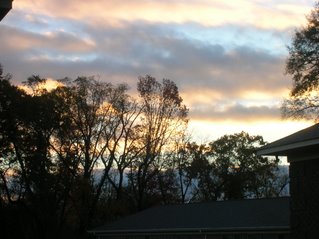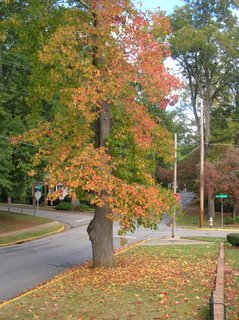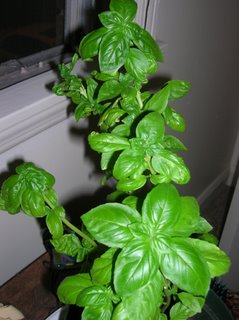Save a tree or two
I received the following e-mail from the Natural Resources Defense Council regarding the preservation of Canada's boreal forest. I've blogged a couple of times now in reference to this ancient wilderness (look here and here). Why, as a native of the southeastern United States, am I so passionate about this particular part of the world?
The boreal forest of Canada is one of the largest remaining intact natural regions in the world. It is home to a variety of wildlife including caribou, bears, wolves, and lynx. It is the summer range for about 1/3 of North American songbirds and 3/4 of North American waterfowl. Its ecology is complex and varied, with forests, mountains, lakes, wetlands, and rivers. Such a place needs to be protected, lest it be lost. There are programs and initiatives in place to protect and preserve large portions of the region, and still others aimed at developing eco-friendly practices within its neighboring communities. The boreal forest is a valuable North American biome, and the more people who become aware and empassioned about its need for preservation, the more positive progression we will see in the efforts to save this forest.
Anyway, on to the e-mail. If you click the link, you can sign your name to a letter to the Manitoba government, urging them to take action. It only takes five seconds, and I have to believe that it makes a difference.
The Manitoba government still has not honored its pledge to
permanently protect the Poplar-Nanowin Rivers traditional lands
in our Heart of the Boreal Forest BioGem.
Your urgent action is needed to ensure that Manitoba makes good
on its repeated promises. Mounting proposals for clearcut
logging, roadbuilding and industrial hydropower development loom
over this irreplaceable habitat for threatened woodland caribou,
moose and millions of songbirds.
Please go to http://www.savebiogems.org/boreal/takeaction
and urge Manitoba's premier to grant permanent protection to
these First Nation lands.
For thousands of years, the Poplar River First Nation has relied
on the trees, plants and wildlife of this expanse of rugged
granite cliffs, dense evergreen woods and tranquil marshlands
for food, medicine and the survival of its beliefs and
traditions. In 2004, the Canadian government recognized the
outstanding cultural and natural values of this wildland by
including it as part of a potential U.N. World Heritage Site.
Under pressure from BioGems Defenders like you, the Manitoba
government renewed interim protection of the Poplar-Nanowin
Rivers Park Reserve to allow for the completion of a land
management plan. Yet more than a year has passed now since the
plan was finalized -- and the Manitoba government has failed to
legislate permanent protection.
Please go to http://www.savebiogems.org/boreal/takeaction
and tell Manitoba's premier to take this long overdue next step
toward creating a World Heritage Site in this region.
Thank you for all of your efforts to protect the wildest reaches
of Canada's vast boreal forest.
Sincerely,
Frances Beinecke
President
Natural Resources Defense Council












